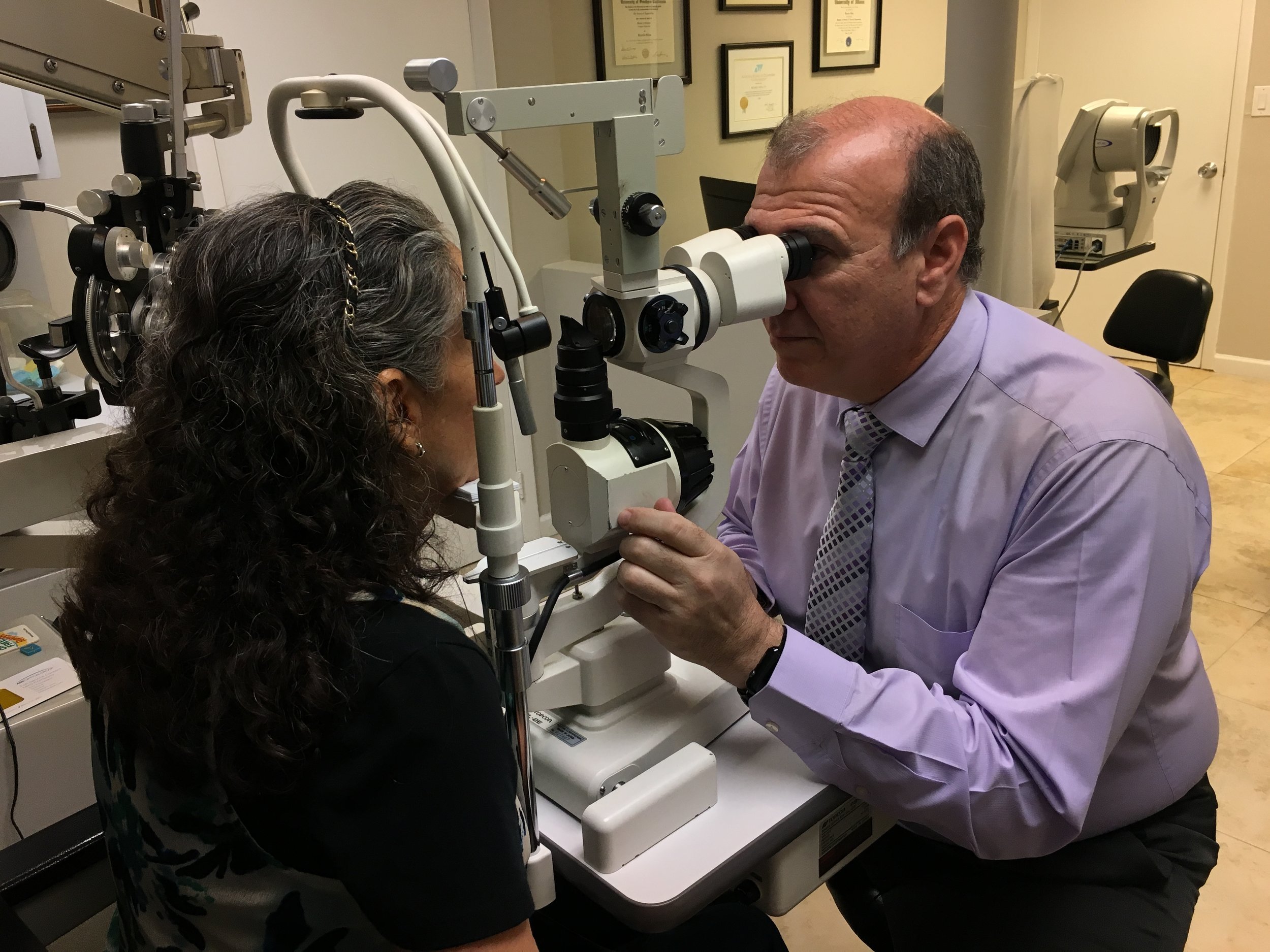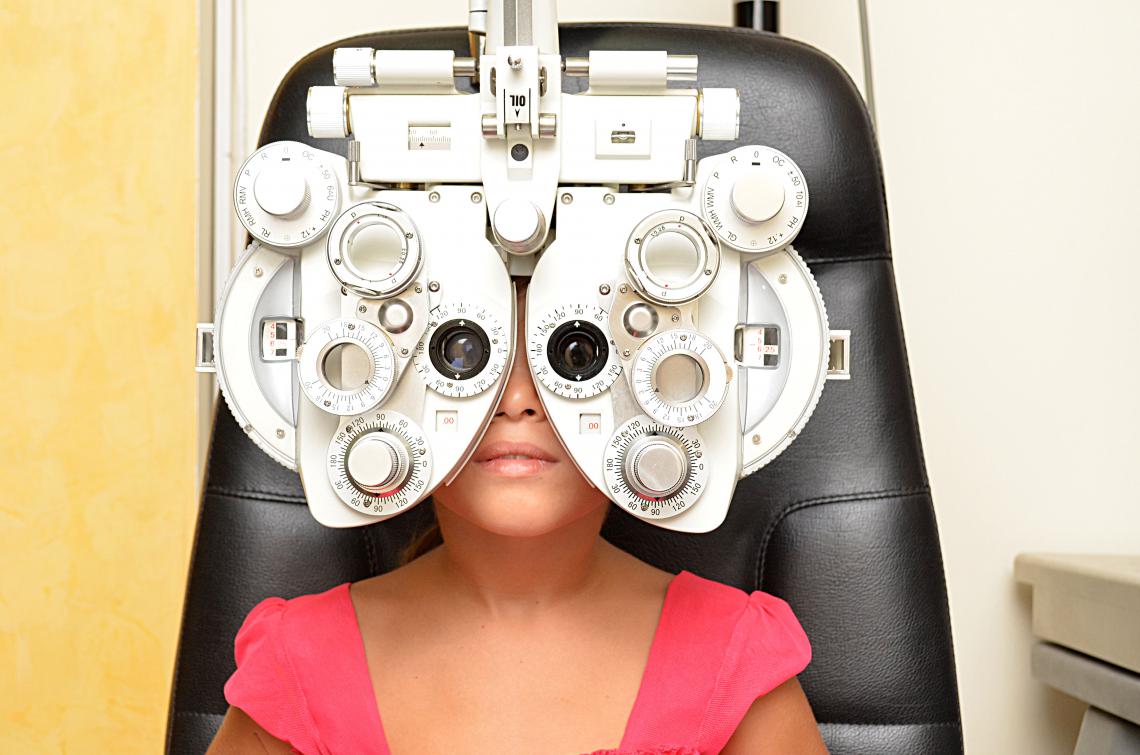Why Selecting an Eye Doctor Optometrist is Important for Your Eyes
Why Selecting an Eye Doctor Optometrist is Important for Your Eyes
Blog Article
Comprehending the Comprehensive Duty of an Eye Doctor in Modern Eye Care
With developments in technology and a raising focus on precautionary care, optometrists are indispensable in detecting and managing persistent eye conditions, while also involving in early condition detection. Exactly how do these responsibilities intersect with their role in promoting general eye health and wellness, and what does this mean for individual outcomes in a collective medical care setting?
Expanded Range of Method
Recently, the duty of eye doctors has actually advanced considerably, with numerous specialists currently accepting a broadened range of practice that prolongs beyond conventional eye evaluations. This development shows the growing acknowledgment of eye doctors as main medical care companies in the field of eye treatment. Their duties currently incorporate a large range of solutions, consisting of recommending medications for ocular conditions, managing persistent eye illness, and executing minor surgeries. This change has been driven by developments in optometric education, boosted clinical training, and the increasing demand for comprehensive eye treatment solutions, especially in underserved locations.
Better, eye doctors are currently a lot more associated with joint treatment, functioning very closely with eye doctors, medical care doctors, and various other health care specialists to make certain holistic client care. This interprofessional partnership is important in taking care of complex cases that need a multidisciplinary approach. Furthermore, eye doctors are playing a pivotal duty in public health and wellness initiatives, such as vision screenings and eye wellness education, targeted at enhancing community wellness outcomes.
The expanded extent of technique for eye doctors not just improves their capacity to supply detailed treatment however additionally addresses the expanding need for easily accessible and effective eye care services, contributing to total medical care improvements.
Early Illness Discovery
Very early detection of eye illness is progressively ending up being a prime focus in the expanded duty of eye doctors. As main eye treatment service providers, optometrists are distinctively positioned to determine very early indications of ocular problems such as glaucoma, macular degeneration, diabetic retinopathy, and cataracts. This pivotal role is vital, as early medical diagnosis can considerably boost the monitoring and diagnosis of these problems, potentially protecting against vision loss and boosting individual end results.
Eye doctors utilize extensive eye evaluations to discover refined modifications in vision and eye health and wellness. These exams frequently consist of analyses of aesthetic acuity, intraocular stress, and retinal health. The capacity to acknowledge very early indicators of systemic health and wellness concerns, such as hypertension and diabetic issues, via ocular indicators even more emphasizes the importance of normal eye examinations. Early intervention is not just valuable in preserving vision however also in minimizing health care prices connected with innovative illness treatments.
Moreover, eye doctors play an important role in client education and learning, stressing the relevance of routine eye examinations as component of total health care. By fostering a proactive method to eye treatment, eye doctors contribute significantly to public health and wellness, guaranteeing illness are caught and taken care of effectively prior to they can progress.
Advanced Diagnostic Techniques
Advanced analysis techniques have revolutionized the technique of optometry, enabling specialists to discover and keep track of ocular diseases with unmatched precision. These developments have transformed the optometric landscape, enabling much more innovative evaluation and treatment strategies. Technologies such as optical comprehensibility tomography (OCT) give high-resolution, cross-sectional photos of the retina, assisting in very early detection of conditions like glaucoma and macular degeneration. This non-invasive technique has come to be important in modern-day optometry, providing comprehensive insights right into retinal layers.
An additional critical innovation is digital retinal imaging, which records comprehensive views of the retina using high-def cams. This innovation is critical in you could try this out recognizing modifications in retinal structure over time, thereby assisting in the monitoring of conditions like diabetic retinopathy. Visual area screening, enhanced by computer-aided systems, permits precise mapping of an individual's line of vision, necessary in tracking and identifying glaucoma development.
Corneal topography, an additional remarkable analysis device, creates topographic maps of the cornea's surface. This is specifically beneficial in fitting call lenses and preparing refractive surgical procedure. These advanced analysis strategies collectively make it possible for optometrists to provide positive, targeted treatment, making certain much better patient results and strengthening their crucial duty in eye wellness management.
Managing Chronic Eye Conditions
Managing chronic eye problems is a keystone of optometric treatment that requires a detailed understanding of different eye conditions and their long-lasting ramifications. Eye doctors play a critical duty in diagnosing, monitoring, Optometrist Chino and handling conditions such as glaucoma, diabetic retinopathy, and age-related macular degeneration. These conditions, if left neglected, can result in significant aesthetic impairment or loss of sight, highlighting the essential importance of recurring care and management.
Optometrists utilize a variety of diagnostic devices, consisting of optical comprehensibility tomography (OCT), aesthetic field screening, and fundus photography, to assess the development of these persistent conditions. By carefully keeping track of modifications in ocular wellness, eye doctors can change treatment plans to minimize illness progression. This might involve suggesting drugs, recommending lifestyle alterations, or collaborating with eye doctors for medical interventions when needed.

Function in Preventive Care
Preventive he said care is an essential facet of optometry that focuses on maintaining eye wellness and stopping the beginning of ocular conditions. Eye doctors play a crucial role in very early detection and prevention, employing normal eye exams to determine danger elements and refined changes in ocular health. Opticore Optometry. These examinations are not simply regarding vision modification yet encompass a detailed assessment of eye functions and structures, making it possible for the recognition of problems such as glaucoma, cataracts, and macular degeneration at a beginning
Along with diagnostics, optometrists enlighten people on lifestyle choices that advertise eye wellness, such as appropriate nourishment, UV protection, and the value of regular eye check-ups. They advise on the right use of digital gadgets to stop electronic eye strain, a growing concern in the digital age. Optometrists additionally supply support on protective glasses for recreational and work tasks, minimizing the threat of injury.
Precautionary eye care reaches systemic wellness concerns that show up in the eyes, such as diabetic issues and hypertension. By teaming up with various other medical care professionals, eye doctors add to all natural patient treatment, emphasizing the interconnectedness of eye and systemic wellness. This aggressive method is crucial in protecting visual acuity and overall wellness.
Final Thought
Optometrists now occupy a crucial duty in contemporary eye care, characterized by an expanded range that consists of diagnosing and handling chronic eye problems, suggesting drugs, and performing small surgical procedures (Opticore Optometry). Their knowledge in very early illness discovery is improved by sophisticated diagnostic methods such as optical coherence tomography and digital retinal imaging. By emphasizing preventative treatment and client education and learning, eye doctors add significantly to general eye health and wellness, teaming up with other health care experts to guarantee extensive and effective individual outcomes

In addition to diagnostics, eye doctors educate individuals on way of living selections that promote eye health, such as proper nourishment, UV security, and the significance of routine eye exams.Preventive eye care extends to systemic wellness issues that materialize in the eyes, such as diabetic issues and hypertension.Optometrists currently occupy a critical role in contemporary eye treatment, defined by an increased scope that consists of identifying and taking care of chronic eye problems, prescribing medicines, and performing minor medical treatments.
Report this page